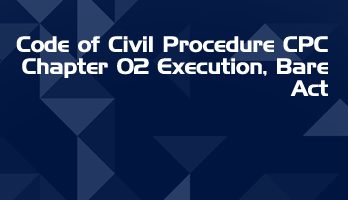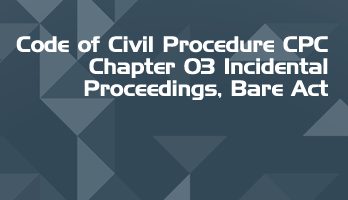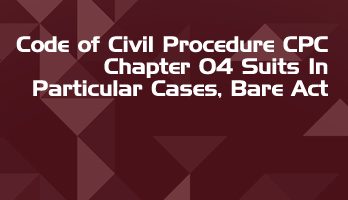A 'Bare act' is the actual legislation passed by the Parliament of India. Generally, an act sets out the high level legal and policy principles applicable to the subject matter of the law.
Most acts are accompanied by 'subsidiary legislation' such as rules, regulations, notifications and orders; which address the actual implementation detail of the act.
Free Full Course Available on LawMint's YouTube Channel
How to Land Your Dream LLB Internship in a Top Law Firm
- Part 1 - Introduction
- Part 2 - Internship Planning
- Part 3 - Internship Research
- Part 4 - Building Your Profile
- Part 5 - The Email
- Part 6 - The Resume
- Part 7 - The Cover Letter
- Part 8 - The Interview
- Part 9 - Self Development
Practical and comprehensive course, with real examples and step-by-step analysis of the complete internship application process. Check out LawMint's YouTube channel now!
Indian Divorce Act, 1869
Chapter IX – Alimony
Section 36 – Alimony pendente lite
In any suit under this Act, whether it be instituted by a husband of a wife, and whether or not she has obtained an order of protection, the wife may present a Petition for alimony pending the suit. Such Petition shall be served on the husband; and the Court, on being satisfied of the truth of the statements therein contained, may make such order on the husband for payment to the wife of alimony pending the suit as it may deem just: Provided that alimony pending the suit shall in no case exceed one – fifth of the husband’s average net income for the three years next preceding the date of the order, and shall continue, in case of a decree for dissolution of marriage or of nullity of marriage, until the decree is made absolute or is confirmed, as the case may be.
Section 37 – Power to order permanent alimony
The High Court may, if it think fit, on any decree absolute declaring a marriage to be dissolved, or on any decree of judicial separation obtained by the wife, and the District Judge may, if he thinks fit, on the confirmation of any decree of his declaring a marriage to be dissolved, or on any decree of judicial separation obtained by the wife, order that the husband shall, to the satisfaction of the Court, secure to the wife such gross sum of money, or such annual sum of money for any term not exceeding her own life, as, having regard to her fortune (if any), to the ability of the husband, and to the conduct of the parties, it thinks reasonable; and for that purpose may cause a proper instrument to be executed by all necessary parties. Power to order monthly or weekly payments. – In every such case the Court may make an order on the husband for payment to the wife of such monthly or weekly sums for her maintenance and support as the Court may think reasonable: Provided that if the husband afterwards from any cause becomes unable to make such payments, it shall be lawful for the Court to discharge or modify the order, or temporarily to suspend the same is to the whole or any part of the money so ordered to be paid, and again to revive the same order wholly or in part, as to the Court seems fit.
Section 38 – Court may direct payment of alimony to wife or to her trustee
In all cases in which the Court makes any decree or order for alimony, it may direct the same to be paid either to the wife herself, or to any trustee on her behalf to be approved by the Court, and may impose any terms or restrictions which to the Court seem expedient, and may from time to time appoint a new trustee, if it appears to’ the Court expedient so to do.
Important Central Acts in Regional Languages
Legislative department website also features regional language versions of several important Central Acts.
Free Full Course Available on LawMint's YouTube Channel
How to Land Your Dream LLB Internship in a Top Law Firm
- Part 1 - Introduction
- Part 2 - Internship Planning
- Part 3 - Internship Research
- Part 4 - Building Your Profile
- Part 5 - The Email
- Part 6 - The Resume
- Part 7 - The Cover Letter
- Part 8 - The Interview
- Part 9 - Self Development
Practical and comprehensive course, with real examples and step-by-step analysis of the complete internship application process. Check out LawMint's YouTube channel now!












